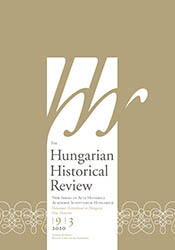Negotiating Widowhood and Female Agency in Seventeenth-Century Hungary
Negotiating Widowhood and Female Agency in Seventeenth-Century Hungary
Author(s): Gabriella ErdélyiSubject(s): 17th Century
Published by: Magyar Tudományos Akadémia Bölcsészettudományi Kutatóközpont Történettudományi Intézet
Keywords: female agency; negotiating female roles, female courts; family network; half-sisters; mother-daughter relationship; emotional practices; letter exchange
Summary/Abstract: The case study focuses on the tactics of aristocratic women to negotiate their familial roles and identities primarily as wives and widows. By reading closely the rich family correspondence of the Várdai-Telegdi family in the first half of the seventeenth century and concentrating on the intensive negotiating period between getting widowed and remarrying the study argues that the role of the go-between and the marginal status of women in the patrilineal and patriarchal family created some space for them to maneuver. Moreover, the cultural context of female familial roles and ties (mother and daughter, mother-in-law and daughter-in-law, half-sisters) was the female court, which created horizontal and intimate ties between women, which also empowered them.
Journal: The Hungarian historical review : new series of Acta Historica Academiae Scientiarum Hungaricae
- Issue Year: 9/2020
- Issue No: 4
- Page Range: 595-623
- Page Count: 29
- Language: English

